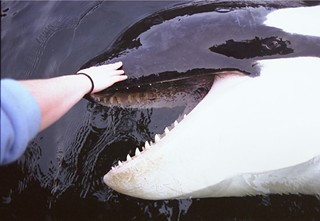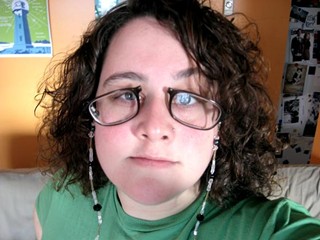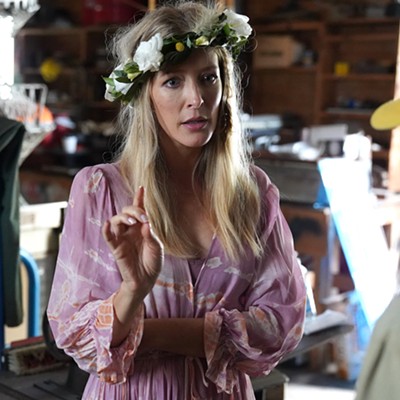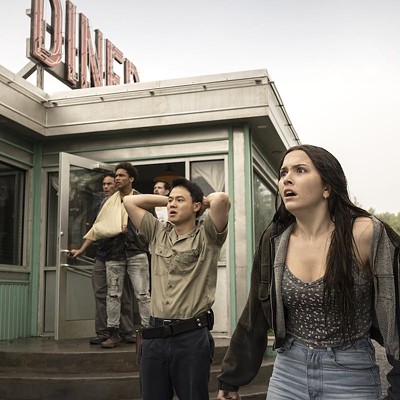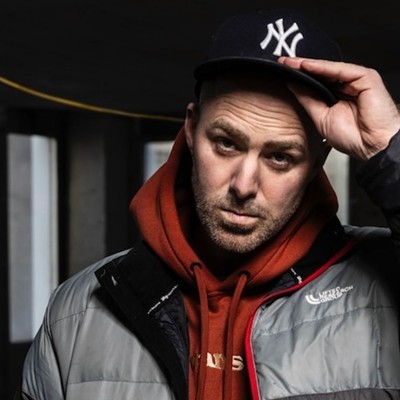When journalists Suzanne Chisholm and Michael Parfit arrived in Nootka Sound, on the west coast of Vancouver Island, in June of 2004, they expected to spend three weeks reporting on an attempt to reunite a young orca with his pod.
Three years later, they left with a movie.
"We thought it was going to be a simple relocation story," says Chisholm over the phone from the "teeny-tiny island" she lives on with Parfit, her husband and co-director of Saving Luna, near Sidney, BC. Once the couple landed on Nootka Sound with an assignment from Smithsonian magazine, they found that there was more to the story than a lost baby whale.
"We've done a lot of work for National Geographic magazine over the years," says Chisholm. "In 1998 we started carrying cameras, primarily as a note-taking technique. We started producing stuff for the National Geographic channel around 2000. And we decided whenever we go on assignment, we're gonna take cameras."
Thus filming began with no plan in mind, resulting in astonishing footage of Luna playfully bumping boats, allowing himself to be petted and, in an initially terrifying scene, opening his mouth and letting people pet his tongue, their whole arms inside the jaws of an animal commonly referred to as "killer." It's easy to see why the whale became such a beloved and defended resident of Nootka Sound---he's puppy levels of adorably clumsy and endearingly needy, with the added exoticism of being a frickin' whale.
But the situation, as Saving Luna deftly lays out, even-handedly, was more than just a folksy small town and its quirky mascot. Luna's playfulness was also destructive, banging up boats of area fishers. Some didn't see his interaction as cute, but a nuisance. When the filmmakers arrived as journalists, the Department of Fisheries and Oceans was trying to capture him and send him back to his pod. The nearby First Nations community of Mowachaht-Muchalaht believed it was nobody's right to interfere with the whale and was actively thwarting DFO's capture attempts. All the while, the government had a boat on the water to deter visitors from interacting with the whale, and posted signs on the docks warning people not to touch or even look him in the eye. ("Luna couldn't read the sign," notes Chisholm.)
"It's so compelling on so many levels," she says. "It's almost like a Hollywood plot---you have a sympathetic character who wants something, and he's so close to getting it, and then it's taken away from him."
In the beginning, Chisholm and Parfit believed the DFO was right---hanging out with Luna was not good for him, not the way nature intended. But, as Parfit's narration repeats throughout the film, things changed.
"When we first started, we really believed he shouldn't have interaction with people. We're very grounded in science, we're law-abiding people," says Chisholm. "His best chances for survival meant we had to leave him alone. But the more time we spent on the water, we realized this policy wasn't working. He's hard-wired to be social andin the absence of other whales, he went for people."
The couple ended up lobbying the DFO to change its policy for this case, meaning they had to put themselves in the film, a difficult choice for practicing journalists trained to stay out of the story. "It was a difficult line to cross but we felt we had no other choice," says Chisholm. "DFO's policies were aimed at killer whales in a pod by themselves that don't usually come up to people."
Though Saving Luna leans favourably toward the actions of the native community, the government doesn't come across poorly, considering. It's clear that hands are tied up in the red tape of bureaucracy, and that the officials involved do want to help. It's the ultimate lack of decisiveness that costs Luna his life. (It happens offscreen, but keep tissues or a spare sleeve handy.)
"We're very mainstream, we're not anti-government at all. Our whole experience taught us that we're not set up for these individual circumstances," says Chisholm. "There's a line in the film: 'We don't ask for our government to be courageous and we don't get courage.' I'm convinced there are people inside DFO that wanted to help Luna but the structure didn't allow it."
Saving Luna opens March 6 in Bayers Lake. Suzanne Chisholm will attend the premiere screening. See Movie Times, page 32, for screening info.

